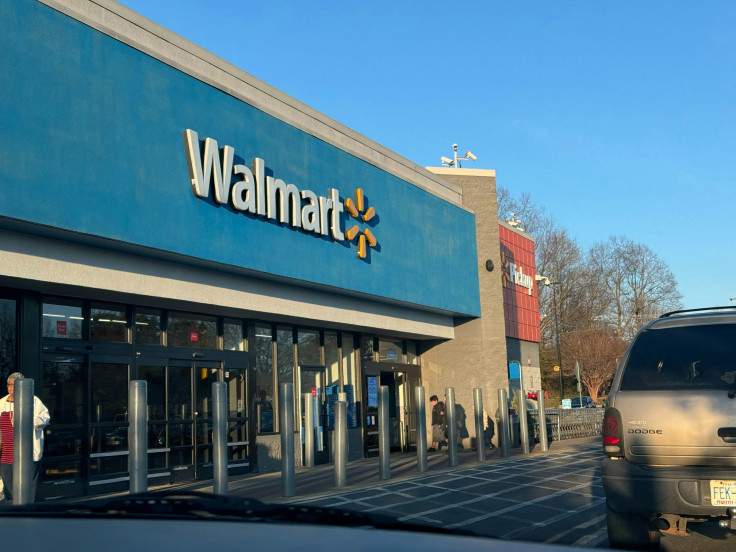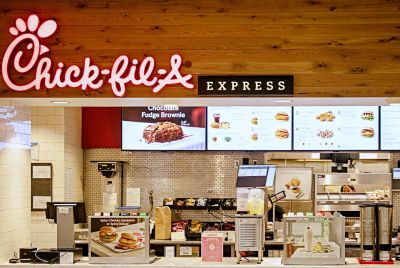Walmart Responds to Trump's $100,000 H-1B Visa Fee Hike — and Foreign Workers Won't Be Happy
Reportedly, the retail giant's decision has more of an impact on corporate positions.

Walmart has reportedly paused job offers to candidates who require H-1B visas in the United States. The decision follows the Trump administration's controversial move to impose a $100,000 (£74,000) fee on new visa applications, a policy that has sent shockwaves through corporate America and sparked an uproar among business leaders who rely on global talent to fill highly skilled roles.
President Donald Trump defended the policy as an effort to curb what he described as "abuse" of the skilled foreign worker programme.
However, industry groups and critics argue that the rule will stifle innovation, slow economic growth, and hurt companies that depend on international expertise in sectors like technology, engineering, and logistics.
Walmart Freezes H-1B Hiring
According to reports, Walmart has temporarily halted job offers for H-1B visa candidates as it assesses the financial and logistical consequences of the new rule.
Sources told Bloomberg that the freeze primarily affects corporate and technical roles rather than the retailer's vast network of frontline store employees.
With more than 1.6 million employees nationwide, Walmart remains the largest private employer in the United States.
While the company is best known for its retail dominance, it also employs thousands of professionals in fields such as data science, software engineering, supply chain management, and logistics.
Many of these positions are filled by highly skilled workers from abroad under the H-1B visa programme.
Government data shows Walmart obtained roughly 2,400 H-1B visas in the first half of 2025, making it the largest retail-sector participant in the programme.
Although that number is modest compared to technology giants like Google, Microsoft, and Amazon, it underscores how the visa system extends beyond Silicon Valley to support the broader U.S. economy.
India remains the leading source of H-1B recipients, accounting for more than 70 percent of approvals in recent years, followed by China with around 12 percent. This trend highlights the global nature of America's skilled workforce and the heavy dependence of U.S. companies on talent from Asia.
A Walmart spokesperson said: "Walmart is committed to hiring and investing in the best talent to serve our customers, while remaining thoughtful about our H-1B hiring approach."
The $100,000 Visa Fee and Its Fallout
The H-1B visa programme allows U.S. companies to employ highly skilled foreign professionals in specialised fields, often filling roles that are difficult to staff locally.
The Trump administration's new rule, introduced in September 2025, requires employers to pay a steep $100,000 (£74,000) fee for every new H-1B visa application.
The policy immediately drew backlash from both business and labour groups. Critics argue the new charge could make it prohibitively expensive for companies to hire global talent, discouraging innovation and reducing competitiveness in industries where expertise is scarce.
Earlier this week, the U.S. Citizenship and Immigration Services (USCIS) issued updated guidance clarifying that the fee applies only to new applicants living outside the United States.
The six-figure payment covers visa petitions filed on or after 21 September 2025 for skilled foreign workers abroad who are not already on H-1B status.
Applications processed through U.S. consulates or ports of entry must include the payment in advance, while workers already in the country switching visa categories, such as from an F-1 student visa to an H-1B, are exempt from the charge.
Growing Concerns Over the Future of Global Hiring
Business leaders warn the new rule could deter foreign professionals from seeking employment in the United States, pushing top talent toward countries with friendlier immigration policies such as Canada, the UK, and Australia.
Analysts believe the move could particularly hurt mid-sized companies that lack the financial capacity of tech giants to absorb such costs.
As companies like Walmart reassess their hiring strategies, the future of America's skilled labour pipeline hangs in the balance.
The controversy underscores the delicate balance between protecting domestic jobs and maintaining the United States' position as a global hub for innovation and enterprise.
© Copyright IBTimes 2025. All rights reserved.





















